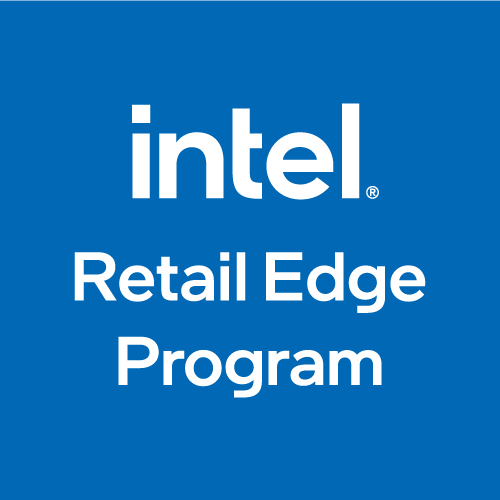12/7/21

Workplace training opportunities reportedly declined by about 18%, thanks to the pandemic. Unfortunately, a lack of sales-focused education is more common than most realize. Companies are still spending billions on training employees, but there's been a steady decline in expenditures over the last few years. The trend isn't just costing sales, it's also causing staggering retention issues.
According to the Bureau of Labor Statistics, 2020 saw a turnover rate of 57.3% in the retail sector alone. That's a significant jump compared to previous years. Many factors contribute to employee turnover, but the Work Institute's Retention Report found that many are directly or indirectly connected to lackluster training.
So, how can you create a compelling retail sales training program that sticks? Here are some must-have components that make all the difference.
First and foremost, your sales team needs to know everything they can about your products and services. It's not enough to read a laundry list of facts behind a counter. Shoppers these days expect the associates they encounter to be product experts.
In-depth product knowledge is paramount in today's retail landscape. Not only is a well-informed sales associate better equipped to highlight what a product brings to the table, but it also opens doors for problem-solving, cross-selling, and a better overall buying journey. Shoppers don't just expect knowledgeable associates, but they're also willing to pay more for a good sales experience.
Of course, the experience isn't all facts and technical jargon. It's about engaging shoppers and creating a memorable experience. Behavioral training can do a lot to prepare your sales team for the intricacies of completing a sale.
Associates must learn how to empathize with a customer's needs, build a rapport, gain trust, and show that your products can fulfill their distinct needs. Every shopper is unique, so your team must adapt their tactics to provide top-notch customer service across the board.
About 96% of shoppers say they'd leave a store for poor customer service. Implementing behavioral training into your program ensures that your team is ready to engage anyone walking through the doors.
One important consideration is how your team will access the training material. Did you know that 61% of visits to U.S. websites in 2020 came from mobile devices? That's up from previous years.
People are more inclined to complete training when it's available anywhere and anytime. That need for convenience is more important now than ever.
In addition to being easy to use, training programs should be manageable. No one wants to sit in a classroom or stare at a screen for several hours as they train. That's even more true if your associates complete sessions on their own time.
The best way to encourage adoption is to use microlearning techniques. According to Raytheon Professional Services, bite-sized lessons only a few minutes long can improve focus and long-term retention by about 80%! Trainees get more bang for their buck while taking away knowledge they can leverage later.
Communication is critical with ongoing training. Thanks to promotional periods, new products, and evolving marketing tactics, things are constantly changing in the retail landscape. Your retail team is only successful if they're up to date on the latest information.
It also pays to create a sense of community among your team. Communication shouldn't be a one-way street. Promote a dialogue, accept feedback, and let your associates collaborate. Collaborative learning is proven to be successful, so why not take advantage of it?
You can implement features like:
A team that works well together is like a well-oiled machine in retail. Together, your associates can create a welcoming atmosphere and use one another's skills to meet the needs of every customer.
Consider making team-building exercises part of your program. You can implement challenges, collaborative projects, or role-playing events. Whatever the case may be, building trust and collective knowledge is always a plus.
Assessments can do a lot to motivate associates and guide the training process. Both self-evaluation and outside assessments can do a lot to help your team reach their full potential. How do you expect to see growth if you don't have a starting point or benchmarks to follow?
Implement quizzes and evaluations into the mix. They don't have to be strict examinations. However, they should gather data that you can use to measure progress. From there, you can adapt the program to highlight strengths and address weaknesses.
Finally, don't forget to recognize everyone's hard work. Incentives, recognition, and rewards are powerful motivation tools. Features like leaderboards, status levels, distinct badging, or even in-program currency go a long way.
Your team will get a lot more out of training than those rewards. However, people are more inclined to continue with a program if you recognize the time and effort they put in. It nurtures the community, empowers your associates to do better, and inspires them to succeed.
An effective retail sales training program can elevate your team and transform them into sales juggernauts that continue to create lasting impressions with your customers.
The Intel® Retail Edge Program includes all of the components your retail associates need to succeed. The Program improves knowledge about cutting-edge Intel® processors and the PCs they power. Thanks to manageable lessons, regularly updated content, and a well-fostered community, your associates can develop their skills and reach their full retail potential.
Check out the Intel® Retail Edge Program today and learn more about what it can do for you and your team.
Notices and Disclaimers
© Intel Corporation. Intel, the Intel logo, and other Intel marks are trademarks of Intel Corporation or its subsidiaries. Other names and brands may be claimed as the property of others.
